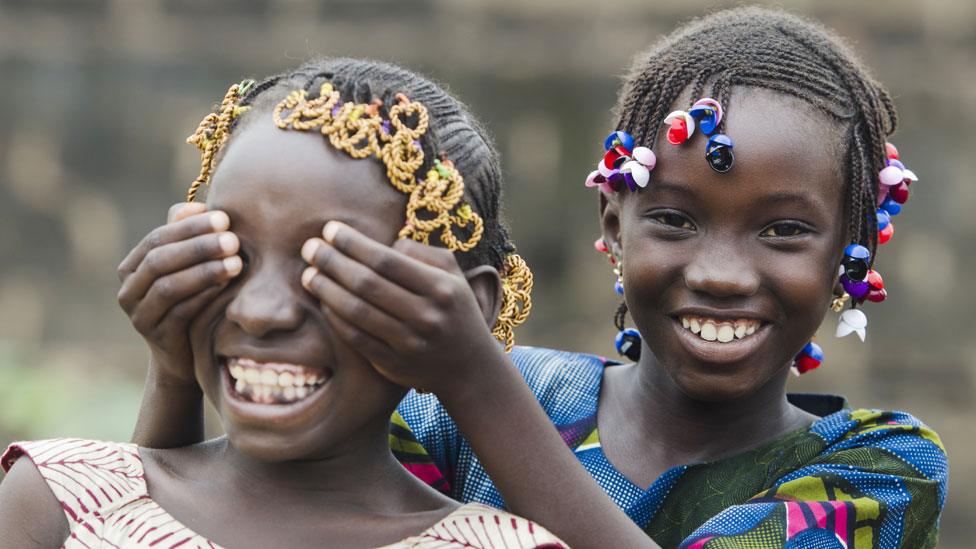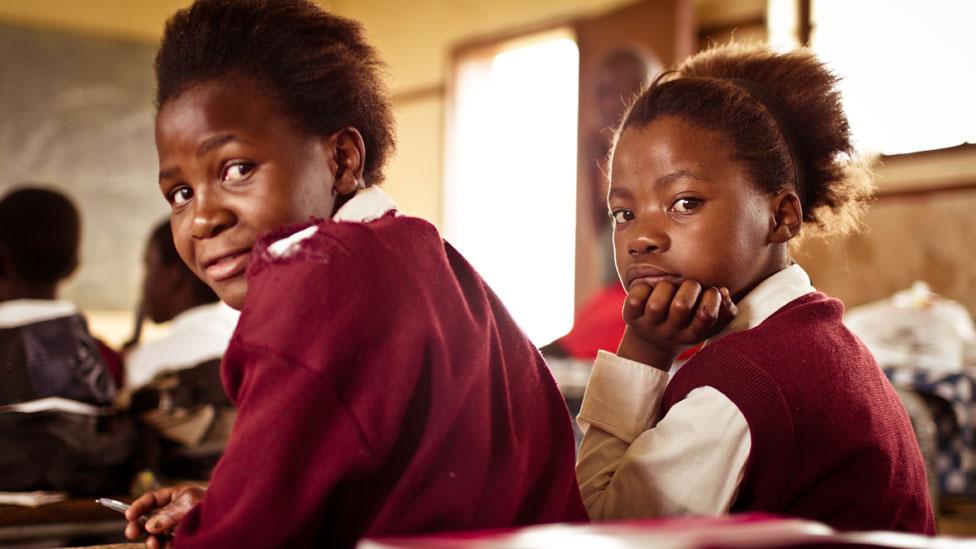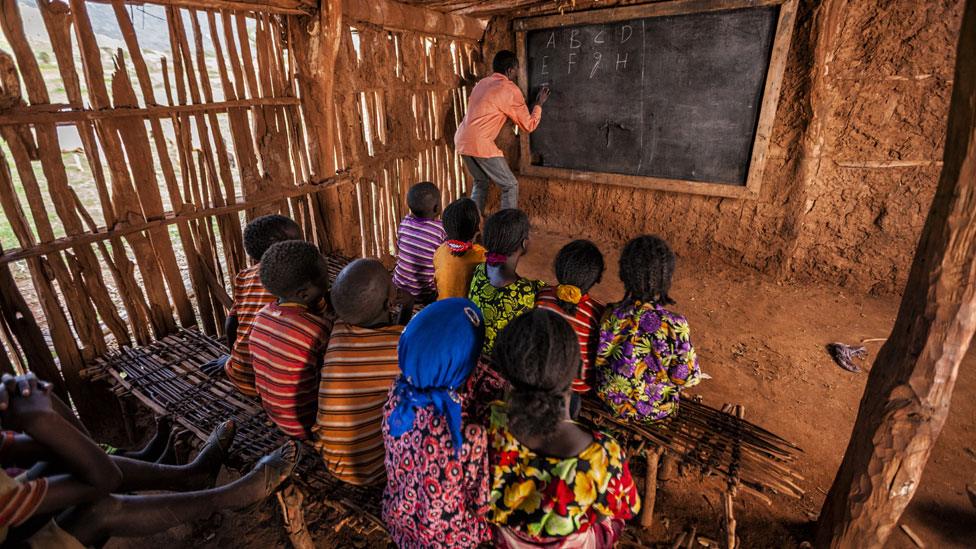UN warns 'no progress' on 260 million missing school places
- Published

Not seeing the problem? Millions of the world's poorest never get to start school
Global pledges to provide education for all young people show little chance of being achieved, according to annual figures from the United Nations.
There are 264 million young people without access to school, with few signs of progress, says Unesco.
Around the world, almost one in 10 children does not even have access to primary level education.
The UN agency says wider access to education would radically reduce poverty and improve security.
The annual Global Education Monitoring Report tracks the numbers of young people in school and measures progress in international promises to ensure access to education.
'No progress'
And these latest Unesco figures, which show the position up to 2015, reveal "virtually no progress" in recent years.
The drive for access to school has been seen as vital for improving the health, economy and stability of some of the world's poorest countries.
But the annual figures show millions of families still without access to even the most basic education.

Girls are particularly likely to miss out on school
The worst out-of-school rates are in sub-Saharan Africa, where 21% of primary-age children and 36% of young teenagers are missing out on school.
The UN figures show about 61 million children are missing primary education.
But it also affects poorer families in Asia - and more than a third of young children without schools are concentrated in six countries:
Ethiopia
India
Indonesia
Nigeria
Pakistan
Sudan
For more than 25 years there have been targets from world leaders to ensure that all children can go to primary school - with successive deadlines missed.
The current target aims to achieve universal primary education by 2030, but the sobering UN report says that based on present trends children will be missing out on school "for generations to come".

Get in touch with the Global education series.

Girls are disproportionately likely to miss out on education, and there are sharp divides between rich and poor.
In the poorest countries, children from wealthy families are nine times less likely to miss out on school than their poorer counterparts.
Accompanying the annual report is an analysis of how much global poverty could be reduced if access to education was widened.

The drive to expand access to school made progress in the early 2000s, but has since struggled to advance
The study says that if all adults could complete secondary education, the economic benefits would lift 420 million out of poverty, reducing by two-thirds the numbers in poverty in South Asia and sub-Saharan Africa.
But despite such potential gains, the report shows progress on reducing out-of-school numbers has stagnated.
There had been considerable progress in the early years of the century, but the proportion of young people without access to primary education has changed little since about 2008.